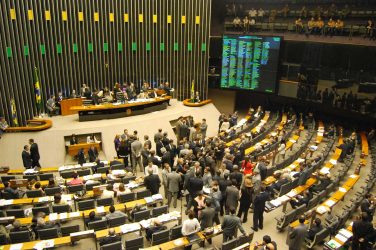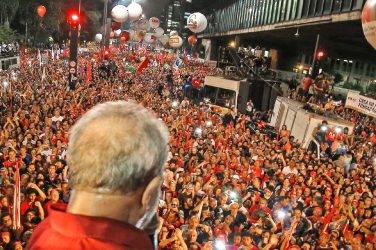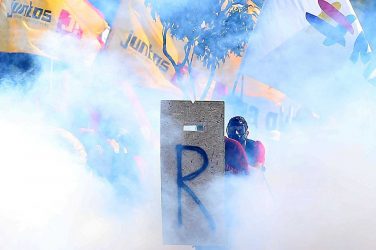Virgílio was 12 years old. His childhood was divided between attending school sporadically and working in the streets of Paranoá, where he lived, and of the Plano Piloto in Brasília. He washed and watched cars, shined shoes.
Jorge was 11 and also lived in Paranoá, facing the same life of child labor, of an incomplete Abolition.
Cristiane was 13 years old. Every morning, with an empty belly and bare feet, she walked about three miles to the school where she was in the sixth grade. Since she worked during harvest time, helping her farm worker mother, she missed part of the school year.
Mara was 14 and in eighth grade. The following year she would abandon her studies to assume the domestic chores at her house and the care of her younger siblings.
They were children and their future was at risk. They could have been among the more than 5 million Brazilians between the ages of 5 and 17 who work, victims of an indifferent society that tolerates child labor.
This picture needs to change. Child labor, it must be emphasized, separates children from school, interrupting their education, prejudicing their development.
And children who spend their childhood in work, insecurity and exploitation will not become adults who are healthy, responsible, “of good character.”
And work is only positive when the young person has reached minimum age and the work is combined with leisure, security, and education.
Children who leave school to work stop receiving fundamental preparation for their future entry into the formal economy and are condemned to misery and unemployment.
Their low education level perpetuates poverty. To break this vicious cycle it is necessary to guarantee that poor children study.
The Bolsa-Escola Program approaches the problem from a simple perspective: If children are poor and need to work, then the solution is to pay their families to keep their children in school.
Besides guaranteeing that children stay in school, the program combats child labor since the parents rapidly perceive that the fatigue and the workdays conflicting with school hours have a devastating impact upon their children’s learning.
The four children mentioned above all received the Bolsa-Escola; they were not condemned to a low level of schooling and the resulting poverty. They are exceptions, but their examples should be the rule.
Virgílio is in the fourth semester of an Information Security course and is Technology Manager of an IT firm.
Jorge finished his studies, learned English, and came in first among 10 thousand candidates in a competitive examination; he is the On-Board Commissioner of the Brazilian Air Force jets that carry our cabinet ministers on official state visits.
Mara studied Information Technology, is a secretary and is studying Pedagogy at the State University of Goiás (UEG).
Cristiane is finishing high school and preparing to take the entrance exam for the UEG Law School
This June 12 is the World Day Against Child Labor. Brazil can set an example for the world if it universalizes the Bolsa-Escola and rigorously monitors its beneficiaries’ school attendance.
To finance this program, the country could exchange a small part of its domestic public debt for investments in K-12 education.
The debt the states and the cities owe the federal government amounts to 290 billion reais (US$ 117.3 billion).
If the federal government would forgive 5% of this sum, stipulating that the money be spent to increase the amount of the Bolsa-Escola and the professors’ salaries and to purchase school equipment, sufficient resources would be available to make a leap forward in the quality of our children’s and young people’s education.
And Brazil would pay off its social debt to millions of children who are victims of child labor.
Senator Buarque appears in the documentary “Stolen Childhoods,” which examines the problem of child labor See http://www.stolenchildhoods.org/mt/index.php for more information.
Cristovam Buarque has a Ph.D. in economics. He is a PT senator for the Federal District and was Governor of the Federal District (1995-98) and Minister of Education (2003-04). You can visit his homepage – www.cristovam.com.br – and write to him at cristovam@senador.gov.br.
Translated from the Portuguese by Linda Jerome – LinJerome@cs.com.












